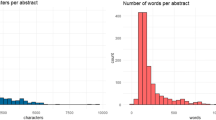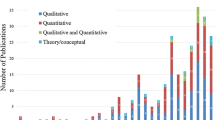Abstract
Language use is a public good. Those using a common language receive benefits that are non-excludable and non-rival. And as more people speak the same language, the greater these benefits are. Sometimes individuals make a conscious decision to learn a language other than their native language in order to receive these benefits, and thereby incur costs. This paper is an attempt to determine how we should share the costs among all beneficiaries. I argue against Van Parijs’s (Linguistic justice for Europe and for the world, Oxford University Press, Oxford, 2011a) proposal for this, and instead argue that an approach found in the work of Gauthier (Morals by agreement, Oxford University Press, Oxford, 1986) is preferable. A general lesson to be drawn from this paper is that the correct principle for distributing the costs of (global) public goods will depend on whether we think the good in question is required by justice or not. Where Van Parijs went wrong, I claim, was in thinking that a cross-border common language is required by justice.
Similar content being viewed by others
Notes
Kaul et al. (1999, p. 16) define global public goods as public goods whose ‘benefits extend to more than one group of countries and do not discriminate against any population group or any set of generations, present or future’.
For a general contractarian treatment of public goods, see Gauthier (1986, pp. 270–272).
This distinction is also made in Miller and Taylor (2015).
On the requirement of justice to meet basic needs, see Rawls (1993, p. 7).
This term is used in Klosko (1992), but defined differently here.
Strictly speaking, ‘leximined’ (Van Parijs 1995, p. 25).
Note that Beitz later changed his view, and adopted the non-relational argument for global egalitarianism (Beitz 1983).
Van Parijs has accepted this argument in principle (Van Parijs 2011b, p. 68).
And given various problems that would arise when implementing global democracy, we may want to restrict democracy’s scope to within states (cf. Miller 2010).
We might not even do this if we thought that translators, or emerging forms of translation technology, could be used instead. Van Parijs is sceptical of this possibility, though (Van Parijs 2011a, pp. 38–39). .
This argument is consistent with a number of non-egalitarian theories which postulate the existence of weighty duties. A theorist endorsing such a theory could still welcome the instrumental role a lingua franca plays in motivating individuals to carry out these duties. This is why the first premise is (1*) and not (1), and why the argument does not fall foul of the objection I raised to using (1) above. I owe this point to Caleb Yong.
An anonymous reviewer suggested this.
An anonymous reviewer suggests that the justificatory bar should be set higher because many individuals are effectively coerced into contributing to a lingua franca. Since, for example, many people have no real option but to learn English in order to further their careers, we may think that they are owed a higher level of compensation than the contractarian proposal affords them. In response, it is unclear to me why the fact that contributions towards a public good are coercively extracted makes a difference to what counts as a fair distribution of those contributions, rather than merely making the implementation of that distribution a higher priority.
On this point, see Miller and Taylor (2015).
References
Beitz, Charles R. 1983. Cosmopolitan ideals and national sentiment. The Journal of Philosophy 80: 591–600.
Beitz, Charles R. 1999. Political theory and international relations: With a new afterword by the author. Princeton: Princeton University Press.
Caney, Simon. 2005. Justice beyond borders: A global political theory. Oxford: Oxford University Press.
Church, Jeffrey, and Ian King. 1993. Bilingualism and network externalities. Canadian Journal of Economics 26: 337–345.
Dahl, Robert A. 1999. Can international organizations be democratic: A skeptic’s view. In Democracy’s edges, ed. Ian Shapiro, and Casiano Hacker-Cordón, 19–36. Cambridge: Cambridge University Press.
Gauthier, David. 1986. Morals by agreement. Oxford: Oxford University Press.
Homans, George. 1961. Social behaviour: Its elementary forms. London: Routledge.
Kaul, Inge, Isabelle Grunberg, and Mark A. Stern. 1999. Defining global public goods. In Global public goods: International cooperation in the 21st century, ed. Inge Kaul, Isabelle Grunberg, and Mark A. Stern, 2–19. New York: Oxford University Press.
Klosko, George. 1992. The principle of fairness and political obligation. Lanham: Rowman & Littlefield.
Kymlicka, Will. 2001. Politics in the vernacular: Nationalism, multiculturalism, and citizenship. Oxford: Oxford University Press.
Miller, David. 1999. Justice and global inequality. In Inequality, globalization, and world politics, ed. Andrew Hurrell, and Ngaire Woods, 187–210. Oxford: Oxford University Press.
Miller, David. 2010. Against global democracy. In After the nation: Critical reflections on post-nationalism, ed. Keith Breen, and Shane O’Neill, 141–160. Basingstoke: Palgrave Macmillan.
Miller, David. 2011. Taking up the slack? Responsibility and justice in situations of partial compliance. In Responsibility and distributive justice, ed. Karl Knight, and Zofia Stemplowska, 230–245. Oxford: Oxford University Press.
Miller, David, and Isaac Taylor. (2015). Distributive justice and public goods. In The Oxford handbook of distributive justice, ed. Serena Olsaretti. Oxford: Oxford University Press (forthcoming).
Philp, Mark. 2009. Delimiting democratic accountability. Political Studies 37: 28–53.
Pool, Jonathan. 1991. The official language problem. American Political Science Review 85: 495–514.
Rawls, John. 1993. Political liberalism. New York: Columbia University Press.
Rawls, John. 1999. The law of peoples. Cambridge: Harvard University Press.
Ronzoni, Miriam. 2009. The global order: a case of background injustice? A practice-dependent approach. Philosophy & Public Affairs 37: 229–256.
Van Parijs, Philippe. 1995. Real freedom for all: What (if anything) can justify capitalism? Oxford: Oxford University Press.
Van Parijs, Philippe. 2011a. Linguistic justice for Europe and for the world. Oxford: Oxford University Press.
Van Parijs, Philippe. 2011b. Just democracy: The Rawls-Machiavelli programme. Colchester: ECPR Press.
Acknowledgments
I am grateful to two anonymous reviewers from helpful comments on an earlier draft of this paper, as well as David Miller, with whom I have had many useful discussions on these issues.
Author information
Authors and Affiliations
Corresponding author
Rights and permissions
About this article
Cite this article
Taylor, I. Language as a Global Public Good. Res Publica 20, 377–394 (2014). https://doi.org/10.1007/s11158-014-9252-z
Published:
Issue Date:
DOI: https://doi.org/10.1007/s11158-014-9252-z




